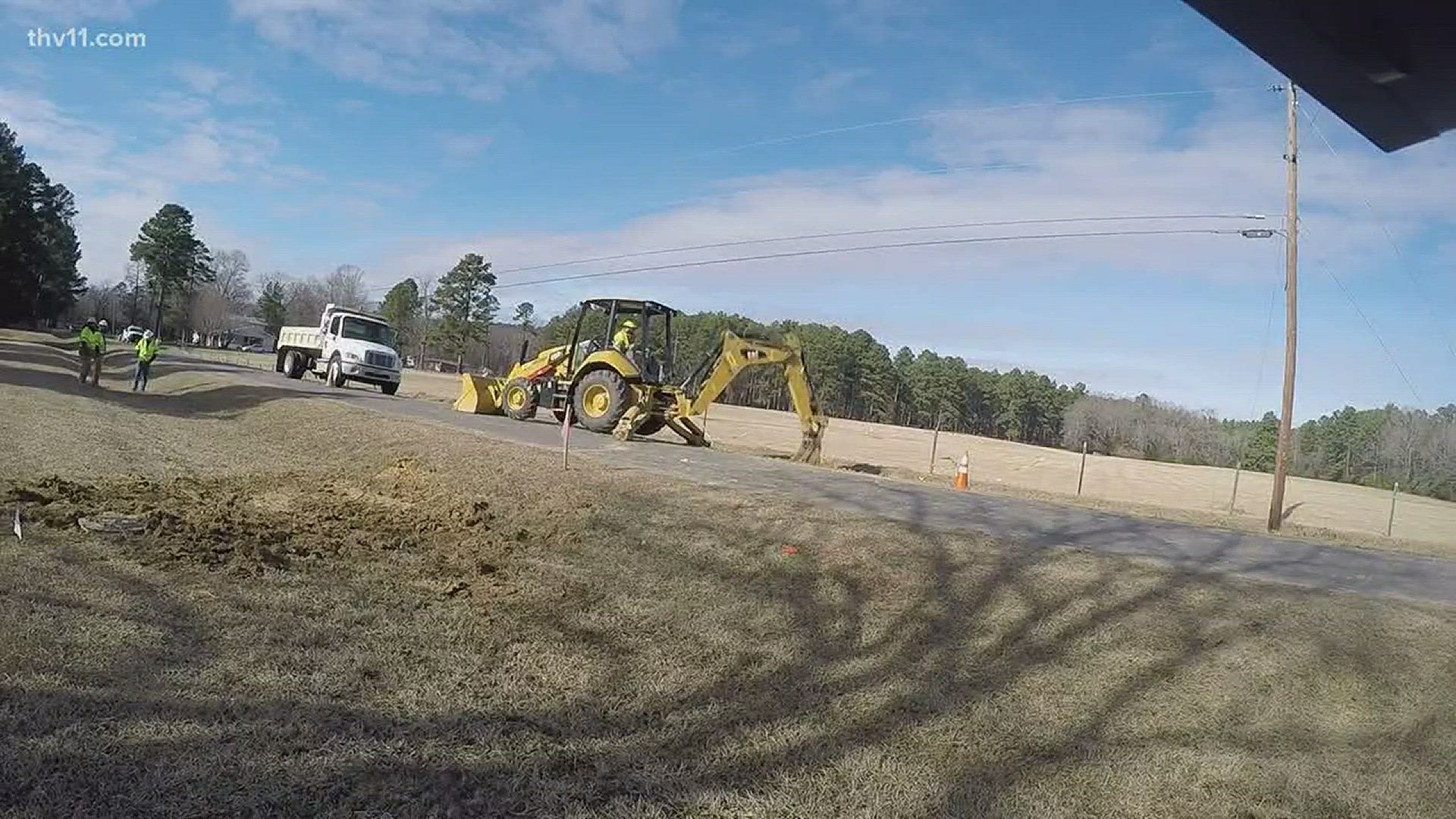LITTLE ROCK, Ark. (KTHV) — The holiday songs are fading away, but one line from Winter Wonderland still applies: "the weather outside is frightful."
With an blast of freezing air heading this way and planning to stay, pipes will burst and power may go out. That means repair crews will be on-call, ready to respond no matter how cold it gets.
“Better dress warm,” said John Hall, a foreman for Central Arkansas Water when he sees the forecast calling for below-freezing highs. He leads teams that have to dig through the dirt, even when it turns to frozen tundra.
“We bring extra clothes, because we do work for the water department,” Hall said. “We do get wet and so we'll change out and dress in layers.”
Hall keeps an eye on his guys, looking for signs the weather may be affecting them.
“When you get wet you try to finish the job first,” he said. “We work on leaks so after you get done you try to dry out and then change the best you can. You stay cold for a while.”
Hall follows guidelines set out by experts like Pablo Soria, a project toxicologist with a PhD in pharmacology for CTEH of North Little Rock. They consult on safety and environmental conditions for employers and governments.
“You watch out for cold stress,” Dr. Soria says. “It's when your body is losing heat faster than it can generate it. Cold stress can be hypothermia. It can be frostbite. Those are some of the more common types of cold stress.”
Dr. Soria warns against overconfidence. Cold stress can come on even in 40-50 degree temperatures. Anytime the body gets wet and gives off more heat than it can generate, things like hypothermia can set in. Supervisors need to be on alert for uncontrollable shivering or skin that becomes waxy with a blueish-gray color.
“You may notice that you stop shivering and at that point it may be more of an emergency that you need to treat,” Dr. Soria said.
“It's just part of the job,” Hall says as his crew continues to extend a water main in Pulaski County. “Most of us have been doing this job for years and you kind of get used to it.”
The ACGIH is a non-profit research organization that helps set guidelines for how to structure shifts and warming periods. The Occupational Health and Safety Agency of the federal government also provide regulations.

